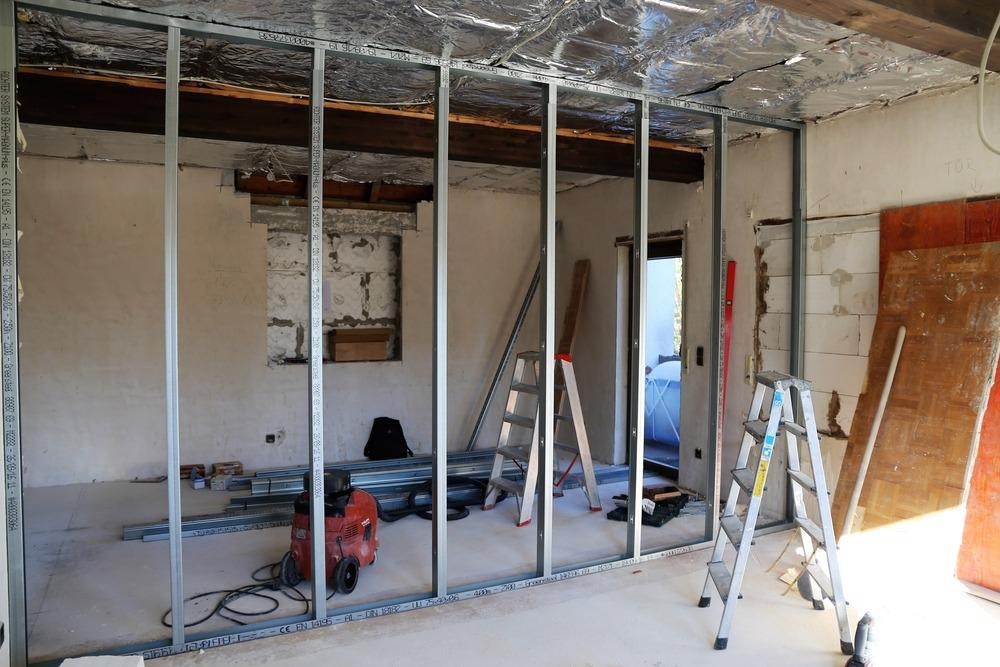Formalized into law in 2016, permitted development is a government policy in the UK that allows for office buildings to be converted into residential spaces.

Image Credit: OlegRi/Shutterstock.com
When it was created, this policy was intended to facilitate the creation of affordable housing. Unfortunately, the reality is that this policy has not matched the initial, seemingly noble intention. the policy has driven up housing numbers in certain key areas, with approximately 65,000 flats having been created. The problem is that the quality of these residences is far below other low-cost housing options.
Report after credible report on permitted development has been a scathing indictment. The policy has led to shoebox-sized flats in Southampton, flats without windows, and one flat in Derby found to be 10 square meters in size.
Despite any apparent failings of this policy, the government has extended permitted development in some respects to further enable commercial developers looking to repurpose large office buildings. For example, office blocks can be demolished, and new structures built without regulatory oversight. The likely result is a larger scale creation of substandard housing.
With other UK nations adopting different policies, England has felt the greatest effects of permitted development. The country's planning system is designed to select optimum locations for the creation of residential buildings. Permitted development bypasses this system.
The result has been the creation of isolated residential buildings located far from schools and shops. Some of these newly built residences are located among factories and have minimal access to public transit. Furthermore, the planning system is meant to ensure certain housing quotas are met and one report from the Local Government Association found that 16,000 potential homes were likely lost due to permitted development.
To address this issue, the government has laid out new rules saying that residences created through permitted development must meet national standards for living space.
Made with the Best of Intentions?
In 2011 and 2012, a conservative UK thinktank called Policy Exchange issued a series of reports that supported the bypassing of full planning permission to convert old office buildings into residential space. The idea was to eliminate bureaucratic red tape and create a bigger supply of low-cost housing units.
In 2013, the UK government adopted this policy on a temporary basis, and in 2016, the policy was made permanent with exceptions for business districts in major cities like London and Manchester. Official policy stipulated local authorities and residents cannot change proposals or stop them from going through.
Developers were free to create living spaces without adhering to rules regarding room sizes or natural light. The result was a race to the bottom in terms of living space and amenities. The exteriors of many repurposed buildings lacked any aesthetics or green spaces that are commonly seen in other low-cost housing projects.
While supporters touted the number of housing units created by the policy, several reports from the University College London, University of Liverpool and others undercut the notion that permitted development has been a major success. In general, these reports have found that permitted development led to the creation of substandard homes that likely have a negative effect on personal health and overall well-being.
In addition to the impacts on the personal lives of residents, local authorities also lost out on millions of pounds in revenues and fees, according to a 2018 report from UCL researchers. Local governments watched as residents moved into these converted buildings And put added strain on local schools, social services, and police departments. in short, costs for local governments went up while revenues remained flat.

Image Credit: Palatinate Stock/Shutterstock.com
The policy behind permitted development was driven by the sense that unused office space was being put to use. However, the policy did not have a mechanism for determining if a building to be converted was actually redundant. In fact, the 2018 UCL report found businesses were actually being pushed out by the policy because property owners could turn a higher profit by converting their space into residences.
While 65,000 housing units have been made by permitted development, that number is just a drop in the bucket when it comes to the UK government’s stated goal of 300,000 new units per year. Critics have pointed out that the conversion of these buildings could have happened more effectively without permitted development. For instance, in Glasgow, a city without permitted development, many buildings have been converted through the traditional planning process.
Effects of the Pandemic
As with many other issues, the COVID-19 pandemic and lockdown have brought this issue into stark relief, placing greater importance on living space, outdoor access, and the ability to work from home. Businesses and developers are now moving forward with a post-pandemic mindset.
Companies will now need less office space as a greater proportion of their workforce works remotely or on a hybrid schedule. There will be more opportunities for developers to convert offices to residential spaces.
Hard hit by the lockdown and pandemic, The City of London has already announced plans to convert disused used offices into housing, and it has cited affordable housing as a key goal of redevelopment.
Resources and Further Reading
Heath, L. Converting offices post-COVID could lead to ‘surge in sub-standard home conversions’, LGA warns. Inside Housing. [Online} Available at: https://www.insidehousing.co.uk/news/news/converting-offices-post-covid-could-lead-to-surge-in-sub-standard-home-conversions-lga-warns-70736
Moore, R. ‘It's like an open prison’: the catastrophe of converting office blocks to homes. The Guardian. [Online] Available at: https://www.theguardian.com/society/2020/sep/27/housing-crisis-planning-converting-office-blocks-homes-catastrophe-jenrick
Gov.UK. When is permission required? [Online] Available at: https://www.gov.uk/guidance/when-is-permission-required
Disclaimer: The views expressed here are those of the author expressed in their private capacity and do not necessarily represent the views of AZoM.com Limited T/A AZoNetwork the owner and operator of this website. This disclaimer forms part of the Terms and conditions of use of this website.